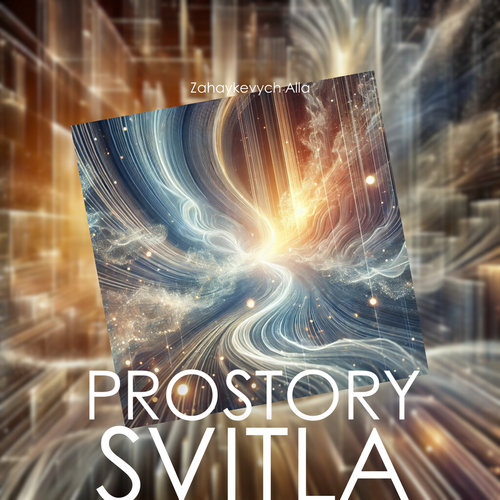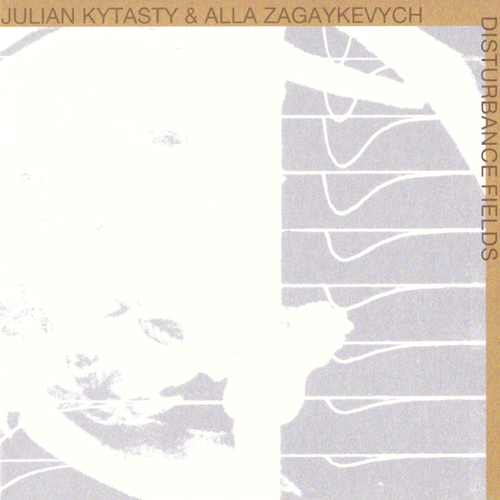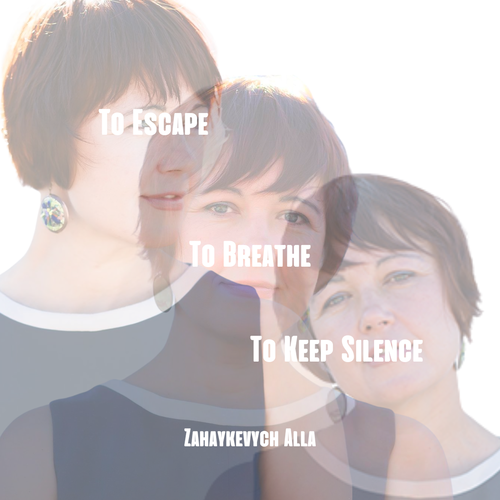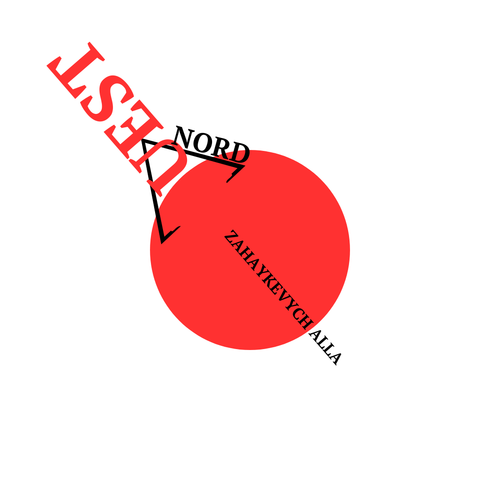Alla Zahaykevych. Biography
Alla Zahaikevych is a Ukrainian composer, educator, and author of musicological articles. She has been a member of the National Union of Composers of Ukraine since 1993 and has served as the Chair of the Electroacoustic Music Association of the Kyiv organization of the Union since 2010. In 2021, she was honored as a Merited Artist of Ukraine.
Born in 1966 in Khmelnytskyi, she studied at the Kyiv State Conservatory (now the National Music Academy of Ukraine) under Professor Yuriy Ishchenko from 1985 to 1990 and at the Institute for Research and Coordination in Acoustics/Music (IRCAM) in Paris from 1995 to 1996. From 1986 to 1999, she was a member of the "Drevo" ensemble, led by Yevhen Yefremov, with whom she explored Ukrainian authentic singing and participated in numerous ethnographic expeditions, conferences, and festivals.
Since the mid-1990s, Zahaikevych has actively promoted academic electroacoustic music in Ukraine and collaborated with experimental electronic musicians. From 1998 to 2023, she taught at the Department of Music Information Technologies at the National Music Academy of Ukraine, where she established an electroacoustic music studio with the support of the International Renaissance Foundation.
She is also the curator of international electroacoustic music projects "Electroacoustics" (since 2003) and "EM-Vision" (since 2005). In 2009, she founded the international project "Electroacoustic's Ensemble," where she contributed as a composer, programmer, and performer of electroacoustic instruments.
Zahaikevych works across various fields, including academic concert genres (symphonic, chamber, and electroacoustic music, opera) and contemporary multidisciplinary projects (audiovisual installations, performances, music for films, and theatrical productions). In electroacoustic performances, she collaborates with new improvisational music performers. She has participated in numerous international contemporary music festivals in Ukraine, France, Sweden, Japan, China, the Czech Republic, Lithuania, Canada, Germany, and Poland. She is also the author of numerous musicological articles published in scholarly collections and journals in Ukraine and abroad.
Her diverse works include Intermezzo for symphony orchestra, Musique Aveugle ("Blind Music") for piano and string orchestra, Cello Concerto with orchestra, Cantos: Island for three cellos and fifteen strings, the opera Vyshyvanyi. The King of Ukraine with a libretto by Serhiy Zhadan, and the chamber opera Numbers and Wind ("Drawings from Memory"). Other works include instrumental and vocal chamber pieces (Mare-X-Nevydomist, Blicke der Verliebten, Pidzemnoyu Riky, Podorozhi Tinei, Gravitation, Viter, Kaminia, Kvity, Povitryana Mekhanika), as well as choral, vocal, and piano compositions.
Zahaikevych is a renowned film composer. Her scores include music for Ukrainian films such as Skhovok and Tysmenytsiaby Nelya Pasichnyk, Mamayi, The Guide, and Dovbush by Oles Sanin, and House "Slovo" by Taras Tomenko.
Her primary focus is on electroacoustic and multimedia works that integrate video, poetry, voice, acoustic instruments, and electronics (recordings or real-time processing). These include compositions such as The Seasons on the Maidan(2004), Laborintus – Exitus (2005), Transparency (2006), SUD/EST (2009), NORD/OUEST (2010), Life as Music (2011), and Prostory Svitla (2022).
Alla Zahaikevych has received numerous grants and awards, including the Levko Revutsky Prize (2001), the Oleksandr Dovzhenko Prize (2004, for her music for Oles Sanin's film Mamayi), an award at the international multimedia competition of the Dresden Center for Contemporary Music (DZzM) in 2004, and the Best Sound Design Award for the film House "Slovo." An Unfinished Novel (2022) at the "I Will Tell" festival in Florida, USA. She has also been recognized with the "Golden Dzyga" award and others.
Born in 1966 in Khmelnytskyi, she studied at the Kyiv State Conservatory (now the National Music Academy of Ukraine) under Professor Yuriy Ishchenko from 1985 to 1990 and at the Institute for Research and Coordination in Acoustics/Music (IRCAM) in Paris from 1995 to 1996. From 1986 to 1999, she was a member of the "Drevo" ensemble, led by Yevhen Yefremov, with whom she explored Ukrainian authentic singing and participated in numerous ethnographic expeditions, conferences, and festivals.
Since the mid-1990s, Zahaikevych has actively promoted academic electroacoustic music in Ukraine and collaborated with experimental electronic musicians. From 1998 to 2023, she taught at the Department of Music Information Technologies at the National Music Academy of Ukraine, where she established an electroacoustic music studio with the support of the International Renaissance Foundation.
She is also the curator of international electroacoustic music projects "Electroacoustics" (since 2003) and "EM-Vision" (since 2005). In 2009, she founded the international project "Electroacoustic's Ensemble," where she contributed as a composer, programmer, and performer of electroacoustic instruments.
Zahaikevych works across various fields, including academic concert genres (symphonic, chamber, and electroacoustic music, opera) and contemporary multidisciplinary projects (audiovisual installations, performances, music for films, and theatrical productions). In electroacoustic performances, she collaborates with new improvisational music performers. She has participated in numerous international contemporary music festivals in Ukraine, France, Sweden, Japan, China, the Czech Republic, Lithuania, Canada, Germany, and Poland. She is also the author of numerous musicological articles published in scholarly collections and journals in Ukraine and abroad.
Her diverse works include Intermezzo for symphony orchestra, Musique Aveugle ("Blind Music") for piano and string orchestra, Cello Concerto with orchestra, Cantos: Island for three cellos and fifteen strings, the opera Vyshyvanyi. The King of Ukraine with a libretto by Serhiy Zhadan, and the chamber opera Numbers and Wind ("Drawings from Memory"). Other works include instrumental and vocal chamber pieces (Mare-X-Nevydomist, Blicke der Verliebten, Pidzemnoyu Riky, Podorozhi Tinei, Gravitation, Viter, Kaminia, Kvity, Povitryana Mekhanika), as well as choral, vocal, and piano compositions.
Zahaikevych is a renowned film composer. Her scores include music for Ukrainian films such as Skhovok and Tysmenytsiaby Nelya Pasichnyk, Mamayi, The Guide, and Dovbush by Oles Sanin, and House "Slovo" by Taras Tomenko.
Her primary focus is on electroacoustic and multimedia works that integrate video, poetry, voice, acoustic instruments, and electronics (recordings or real-time processing). These include compositions such as The Seasons on the Maidan(2004), Laborintus – Exitus (2005), Transparency (2006), SUD/EST (2009), NORD/OUEST (2010), Life as Music (2011), and Prostory Svitla (2022).
Alla Zahaikevych has received numerous grants and awards, including the Levko Revutsky Prize (2001), the Oleksandr Dovzhenko Prize (2004, for her music for Oles Sanin's film Mamayi), an award at the international multimedia competition of the Dresden Center for Contemporary Music (DZzM) in 2004, and the Best Sound Design Award for the film House "Slovo." An Unfinished Novel (2022) at the "I Will Tell" festival in Florida, USA. She has also been recognized with the "Golden Dzyga" award and others.
The text was created by Viktoria ANTOSHEVSKA
Translation Taras DEMKO
Translation Taras DEMKO
Алла Загайкевич. Біографія
Алла Загайкевич – українська композиторка, педагогиня, авторка музикознавчих статей. Членкиня Національної спілки композиторів України (1993),
Голова Асоціації електроакустичної музики Київської організації НСКУ (2010). Заслужена діячка мистецтв України (2021).
Голова Асоціації електроакустичної музики Київської організації НСКУ (2010). Заслужена діячка мистецтв України (2021).
З середини 90-х років активно пропагує академічну електроакустичну музику в Україні. Співпрацювала з музикантами експериментальної електронної музики.
З 1998 по 2023 рік викладала на кафедрі музично-інформаційних технологій Національної музичної академії України, де за сприяння Міжнародного фонду «Відродження» заснувала студію електроакустичної музики.
Народилась 1966 року у Хмельницькому. Навчалася в Київській державній консерваторії (нині Національна музична академія) в класі професора Юрія Іщенка (1985–1990) та в Інституті дослідження й координації акустики/музики (IRCAM) у Парижі (1995–1996). У 1986–1999 роках була учасницею гурту «Древо» (керівник Євген Єфремов), з яким досліджувала український автентичний спів, брала участь у численних фольклорних експедиціях, конференціях, фестивалях.
З середини 90-х років активно пропагує академічну електроакустичну музику в Україні. Співпрацювала з музикантами експериментальної електронної музики.
З 1998 по 2023 рік викладала на кафедрі музично-інформаційних технологій Національної музичної академії України, де за сприяння Міжнародного фонду «Відродження» заснувала студію електроакустичної музики.
Алла Загайкевич також є кураторкою міжнародних проектів електроакустичної музики «Електроакустика» (з 2003) та «ЕМ-візія» (з 2005). У 2009 року заснувала міжнародний проект Electroacoustic's ensemble, де виступила як композиторка, програмістка, виконавиця на електроакустичних інструментах.
Композиторка поєднує роботу в академічних концертних жанрах (симфонічна, камерна, електроакустична музика, опера) та в сучасних мультидисциплінарних проектах (аудіовізуальні інсталяції, перформанси, музика до кінофільмів і театральних вистав). В електроакустичних перформансах виступає з виконавцями нової імпровізаційної музики. Учасниця багатьох міжнародних фестивалів сучасної музики в Україні, Франції, Швеції, Японії, Китаї, Чехії, Литві, Канаді, Німеччині, Польщі. Авторка численних музикознавчих статей у наукових збірках і журналах в Україні та за кордоном.
Творчість Алли Загайкевич охоплює різноманітні жанри. Серед них Intermezzo для симфонічного оркестру, “Musique Aveugle” (“Сліпа музика”) для фортепіано та струнного оркестру, Концерт для віолончелі з оркестром, “Cantos: Island” для трьох віолончелей та п'ятнадцяти струнних; опера “Вишиваний. Король України” на лібрето Сергія Жадана та камерна опера “Числа і вітер” (“Малюнки з пам'яті”); інструментальні та вокальні камерні твори (“Маре-X-невідомість”, “Blicke der Verliebten”, “Підземною рікою”, “Подорожі тіней”, “Гравітація”, “Вітер, каміння, квіти”, “Повітряна механіка” та багато інших), хорові, вокальні, фортепіанні твори.
Алла Загайкевич відома кінокомпозиторка. Серед її робіт музика до українських фільмів “Сховок” та “Тисьмениця” Нелі Пасічник, “Мамай”, “Поводир” та “Довбуш” Олеся Саніна, “Будинок “Слово” Тараса Томенка.
Найбільше уваги композиторка приділяє електроакустичним та мультимедійним творам, у яких поєднуєднуються відео, поезія, голос, низка акустичних інструментів та електроніка (записи або обробка в реальному часі). Серед них такі композиції як “Пори року на Майдані” (2004), “LABORINTUS — EXITUS” (2005), “TRANSPARENCY” (2006), “SUD/EST” (2009), “NORD/OUEST”(2010), “Life as Music” (20011), “Prostory svitla” (2022) та багато інших.
Алла Загайкевич є володаркою численних ґрантів і нагород, зокрема премії імені Левка Ревуцького (2001), премії імені Олександра Довженка (2004, за музику до фільму Олеся Саніна «Мамай»), міжнародного конкурсу мультимедійних проектів Дрезденського центру сучасної музики DZzM (2004), нагороди за найкраще звукове оформлення фільму “Будинок Слово. Нескінченний роман” (2022) на фестивалі «I Will Tell» (Флорида, США), премії “Золота Дзиґа” та інших.
З середини 90-х років активно пропагує академічну електроакустичну музику в Україні. Співпрацювала з музикантами експериментальної електронної музики.
З 1998 по 2023 рік викладала на кафедрі музично-інформаційних технологій Національної музичної академії України, де за сприяння Міжнародного фонду «Відродження» заснувала студію електроакустичної музики.
Алла Загайкевич також є кураторкою міжнародних проектів електроакустичної музики «Електроакустика» (з 2003) та «ЕМ-візія» (з 2005). У 2009 року заснувала міжнародний проект Electroacoustic's ensemble, де виступила як композиторка, програмістка, виконавиця на електроакустичних інструментах.
Композиторка поєднує роботу в академічних концертних жанрах (симфонічна, камерна, електроакустична музика, опера) та в сучасних мультидисциплінарних проектах (аудіовізуальні інсталяції, перформанси, музика до кінофільмів і театральних вистав). В електроакустичних перформансах виступає з виконавцями нової імпровізаційної музики. Учасниця багатьох міжнародних фестивалів сучасної музики в Україні, Франції, Швеції, Японії, Китаї, Чехії, Литві, Канаді, Німеччині, Польщі. Авторка численних музикознавчих статей у наукових збірках і журналах в Україні та за кордоном.
Творчість Алли Загайкевич охоплює різноманітні жанри. Серед них Intermezzo для симфонічного оркестру, “Musique Aveugle” (“Сліпа музика”) для фортепіано та струнного оркестру, Концерт для віолончелі з оркестром, “Cantos: Island” для трьох віолончелей та п'ятнадцяти струнних; опера “Вишиваний. Король України” на лібрето Сергія Жадана та камерна опера “Числа і вітер” (“Малюнки з пам'яті”); інструментальні та вокальні камерні твори (“Маре-X-невідомість”, “Blicke der Verliebten”, “Підземною рікою”, “Подорожі тіней”, “Гравітація”, “Вітер, каміння, квіти”, “Повітряна механіка” та багато інших), хорові, вокальні, фортепіанні твори.
Алла Загайкевич відома кінокомпозиторка. Серед її робіт музика до українських фільмів “Сховок” та “Тисьмениця” Нелі Пасічник, “Мамай”, “Поводир” та “Довбуш” Олеся Саніна, “Будинок “Слово” Тараса Томенка.
Найбільше уваги композиторка приділяє електроакустичним та мультимедійним творам, у яких поєднуєднуються відео, поезія, голос, низка акустичних інструментів та електроніка (записи або обробка в реальному часі). Серед них такі композиції як “Пори року на Майдані” (2004), “LABORINTUS — EXITUS” (2005), “TRANSPARENCY” (2006), “SUD/EST” (2009), “NORD/OUEST”(2010), “Life as Music” (20011), “Prostory svitla” (2022) та багато інших.
Алла Загайкевич є володаркою численних ґрантів і нагород, зокрема премії імені Левка Ревуцького (2001), премії імені Олександра Довженка (2004, за музику до фільму Олеся Саніна «Мамай»), міжнародного конкурсу мультимедійних проектів Дрезденського центру сучасної музики DZzM (2004), нагороди за найкраще звукове оформлення фільму “Будинок Слово. Нескінченний роман” (2022) на фестивалі «I Will Tell» (Флорида, США), премії “Золота Дзиґа” та інших.
Над текстом працювалa Вікторія Антошевська
Bezborodko Oleg. Biography
Stefania Turkevych (1898-1977) was born in L’viv, one of the cultural epicenters of Galicia. During her lifetime, Galicia was part of the Austrian Empire, then Poland, then part of the Ukrainian Soviet Socialist Republic. This region bore the marks of Austrian, Hungarian, Lithuanian, Russian, and Polish influence and would soon witness the rise of the Soviet state. Turkevych’s father and grandfather were priests, and her mother was a pianist. Turkevych herself played piano, harp, and harmonium.1 Her prodigious talent led her to study in Vienna (1914-16; 1921-25), at the L’viv Conservatory (1918-19), and at the Prague Conservatory and the Ukrainian Free University in Prague (1930-34). Her early education was remarkably cosmopolitan.
Turkevych’s compositional language is unique.
Although one can hear the technical influence of Schoenberg and can detect certain expressionist tendencies, her music is generally quite lyrical, with occasional folk influence. This is typical of Turkevych’s style: she walks the line between tonality and expressionism—especially in her art songs—occasionally incorporating elements of pointillism and impressionism.
Turkevych displayed an early proclivity for composition. During her time at the L’viv Conservatory, she composed a series of liturgical works for the choir at St. George’s Cathedral, the mother church of the Ukrainian Greek Catholic Church.6 Shortly after marrying the rising Ukrainian-German expressionist painter Robert Lisowski in 1925,7 Turkevych moved to Berlin and studied composition privately with Arnold Schoenberg (1874-1951) and Franz Shreker (1878-1934). Turkevych earned a PhD in Musicology from the Ukrainian Free University in Prague in 1934, becoming the first woman from Galicia to receive a doctorate. Her boldly nationalistic dissertation was entitled “Ukrainian Folklore in Russian Operas.” She is now considered Ukraine’s first female composer.8 Immediately after receiving her PhD, Turkevych returned to L’viv, where she taught at the L’viv National Music Academy (sometimes called the L’viv Conservatory). She maintained this position until 1939, when she began working as a coach and accompanist at the L’viv National Opera alongside her sister, Irina Martynec (an opera singer). It was here that the two sisters met prima ballerina Daria NyzankiwskaSnihurowycz, who would become an important co-collaborator both in Ukraine and on Canadian soil more than 30 years later (for the premiere of Turkevych’s 1969 operaballet, Серце Оксани).
Turkevych displayed an early proclivity for composition. During her time at the L’viv Conservatory, she composed a series of liturgical works for the choir at St. George’s Cathedral, the mother church of the Ukrainian Greek Catholic Church.6 Shortly after marrying the rising Ukrainian-German expressionist painter Robert Lisowski in 1925,7 Turkevych moved to Berlin and studied composition privately with Arnold Schoenberg (1874-1951) and Franz Shreker (1878-1934). Turkevych earned a PhD in Musicology from the Ukrainian Free University in Prague in 1934, becoming the first woman from Galicia to receive a doctorate. Her boldly nationalistic dissertation was entitled “Ukrainian Folklore in Russian Operas.” She is now considered Ukraine’s first female composer.8 Immediately after receiving her PhD, Turkevych returned to L’viv, where she taught at the L’viv National Music Academy (sometimes called the L’viv Conservatory). She maintained this position until 1939, when she began working as a coach and accompanist at the L’viv National Opera alongside her sister, Irina Martynec (an opera singer). It was here that the two sisters met prima ballerina Daria NyzankiwskaSnihurowycz, who would become an important co-collaborator both in Ukraine and on Canadian soil more than 30 years later (for the premiere of Turkevych’s 1969 operaballet, Серце Оксани).




